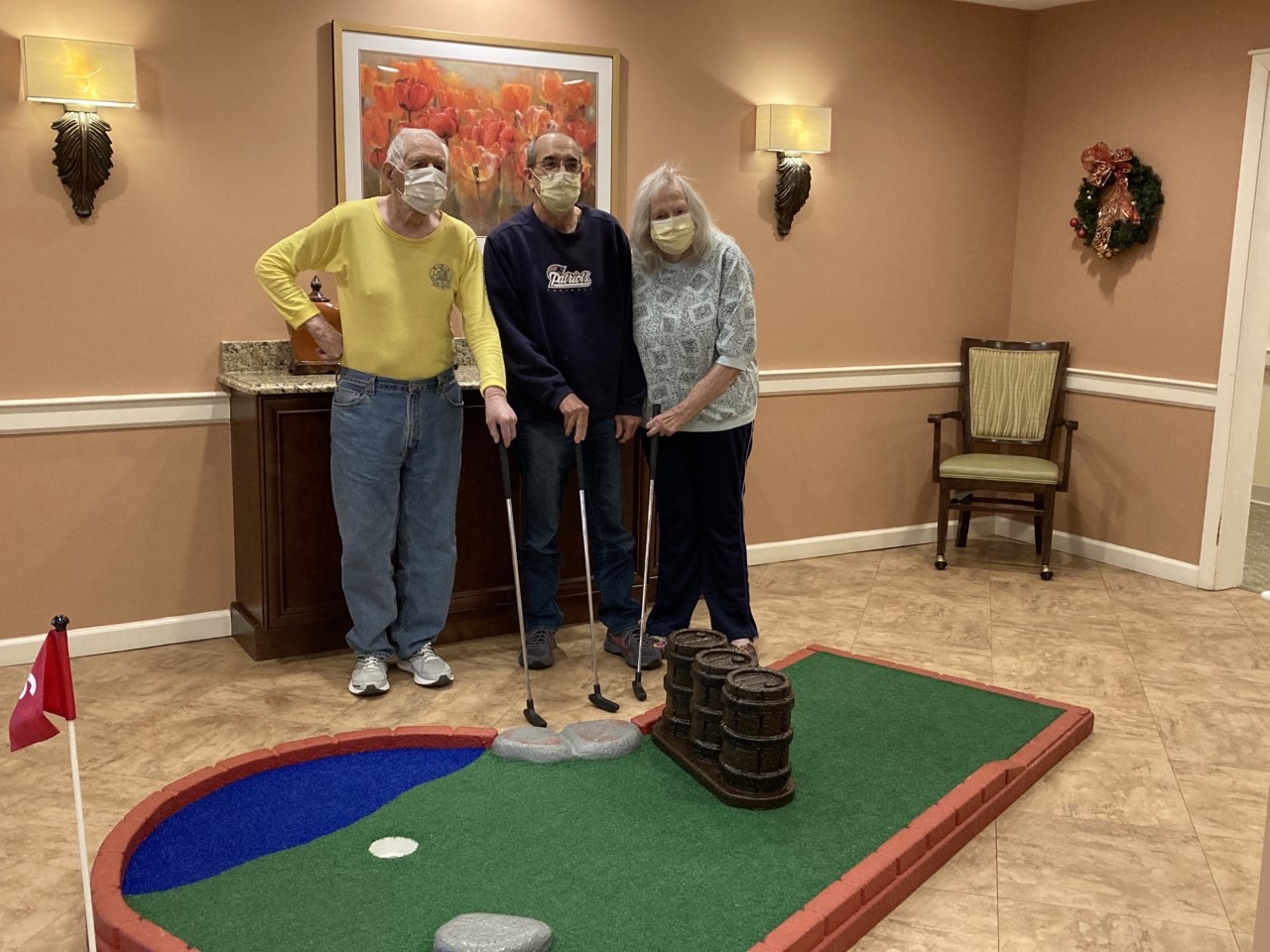It is important to recognize the difference between agitation and aggression in people living with Alzheimer’s disease or other forms of dementia. Agitation means an individual is restless or worried; the person can’t seem to settle down. They may be anxious or exhibit nervous mannerisms, such as pacing or sleeplessness.
In aggression, individuals may lash out verbally or try to hit or hurt someone or themselves. Aggression can occur suddenly, with no apparent reason, or it can result from frustration. While aggression can be difficult to cope with, it is helpful to understand someone with Alzheimer’s or dementia is not acting this way deliberately; it is beyond their control.
Identifying the Cause
Most of the time, aggression happens for a reason. Try to determine what brought on the aggression. Some triggers common to people living with dementia follow.
Physical Discomfort
Is the person in pain? Are they tired, hungry, or thirsty? Do they need to use the bathroom? Perhaps interactions of medications are causing side effects. Constipation or soiled underwear or diaper can be uncomfortable and cause aggressive behavior.
Environmental Factors
An overactive environment, loud noises, or physical clutter can cause behavioral problems. Large crowds or being surrounded by unfamiliar people – even at home – can be over-stimulating for someone with dementia.
What did the environment look, smell, or sound like before the aggression? Were new or different stimuli introduced – noise, people, questions, requests?
Poor Communication
Not understanding instructions can be a trigger for aggression. Asking too many questions or making too many statements at once can be confusing and lead to aggression. Your stress or irritability can affect a person with dementia.
Mental Issues
Does the person feel lost, lonely, or depressed? A sudden change in a well-known place or routine can be upsetting.
Feeling pushed by others to do something; for example, to bathe or to remember people or events, can cause problem behaviors.
Timing Plays a Part
Some people function better during a certain time of day. Note the time of day that outbursts occur and schedule appointments or activities when you know the person is better able to process new information or surroundings.
General Tips
- Keep a routine, such as bathing, dressing, and eating at the same time each day.
- Reduce the noise, clutter, or number of people in the room. Limit caffeine, sugar, and “junk food.”
- To increase a feeling of personal security and familiarity, keep well-loved objects and photographs around the home.
- Build quiet times into the day along with activities.
- If your worries may be affecting the person, try to slow down and relax. Find a break from caregiving and seek out professional resources to help you reduce the stress of caregiving.
- Look for patterns to help predict and prevent future behavioral problems.
Reacting to Aggression
- Put yourself in the person’s place.
- Look at body language. Imagine what they might be feeling or trying to express.
- Are basic human needs being met? Fulfilling a need can quickly resolve the reason for the behavior.
- Validate feelings. A person with dementia has most likely lost the ability to reason. Trying to explain why a thought is “wrong” or that there is no need to worry, may escalate the situation. Reassure and with a gentle touch, let the individual know you are listening. Convey you know they are upset, and you want to help.
- Watch your body language, facial expression, and tone of voice: make eye contact, smile, and provide a reassuring touch to convey your message gently and show compassion. Don’t take problem behaviors personally and try your best to stay calm.
- Be accepting. Rather than correcting or arguing, look for opportunities to agree.
- Introduce pleasant stimuli, such as music, food, or a beverage. Talk about a favorite photo or trinket you know is cherished. Using familiar music or scents that evoke positive feelings can help diffuse the situation. Often caregivers keep a “behavior bucket” with such specific items on hand.
- Engage the person in a favorite hobby or interest. Look through photos together or read aloud.
Be Safe
If aggression is directed at you, keep a safe distance and remain calm. Speak slowly, softly, and with reassurance. When you are on the receiving end of an outburst, your safety, as well as the other person’s, is paramount.
Use a cooling-off period, if safe to do so, allowing time and space for composure to return … for both of you.
For more information about dementia and aggression, visit the National Institute on Aging’s Alzheimer’s and related Dementias Education and Referral Center (ADEAR) or call 1-800-438-4380.
Contact
In addition to housing, healthcare and programs for seniors, SALMON Health and Retirement communities offer support groups and resources for caregivers and family members. To learn more about the options available to you and your loved ones, contact us today for more information.




